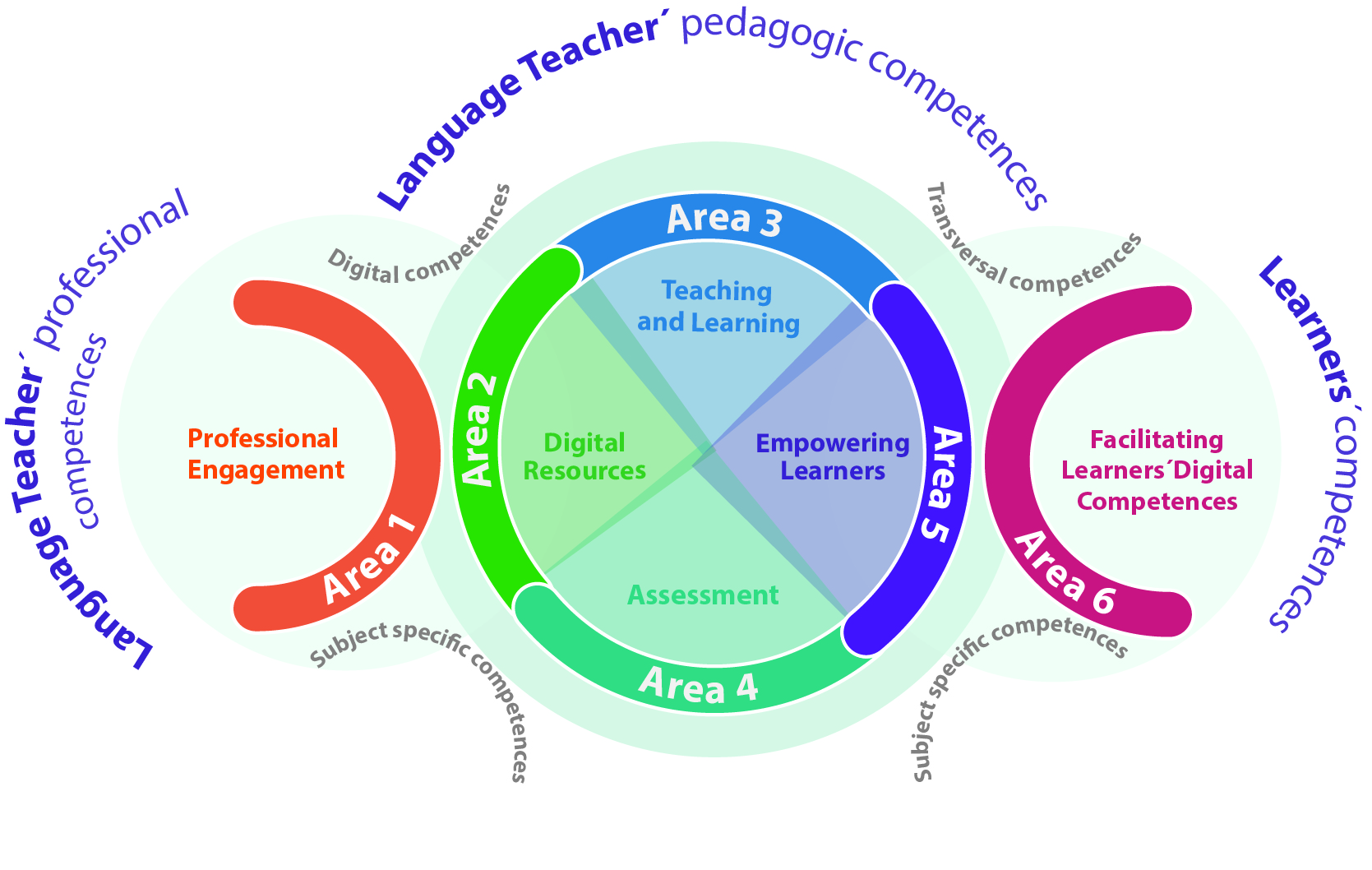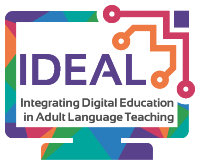Digitalisation has found its place in current language teaching practice. For many language teachers, the use of learning platforms, online videos and podcasts have become new teaching and learning tools, supporting and encouraging learners.
Modern language teaching uses a range of digitals tools to introduce new topics or single exercises. As an indicator of this, the extended and broadened Common European Framework of Reference for Languages (CEFR) with new descriptors also includes the area of “online communication”. This ensures that learners in language classes are specifically drawn towards communication via emails, in social media etc. to successfully pass future language tests according to the Common European Framework.
Meaningfully and effectively using digital media in foreign language learning, however, requires the teachers‘ development of digital competences. These are in turn enormously important for promoting digital competences among adult learners. With their acquired competences, learners can be prepared to manage not only grammar, vocabulary and regional/cultural studies, but shall also be well prepared for the private and working life in the re-spective country.

